Search
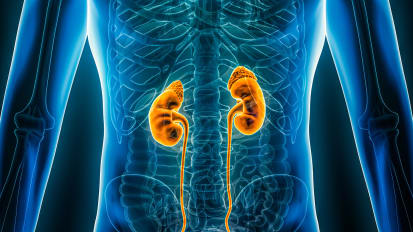 News
News
Acute Kidney Injury is not Associated with Worsening Kidney Function in Patients with Chronic Kidney Disease
A UC San Francisco (UCSF)-led study of patients with chronic kidney disease (CKD) has found that mild-to-moderate acute kidney injury (AKI) did not predict worsening of kidney function after taking into account differences in pre-existing health. News
News
UCSF Among First in U.S. to Receive New Surgery Designation from the American College of Surgeons
UC San Francisco Medical Center (UCSF) is among just four hospitals in the U.S. to be verified as part of the American College of Surgeons (ACS) Vascular Verification Program (Vascular-VP)... News
News
Aggressive Blood Pressure Control May Prevent Common Heart Condition
Heart conduction disorders can often lead to serious or fatal complications including complete heart block or heart failure. News
News
Can Artificial Intelligence Reduce Invasive Testing and Improve Cardiac Diagnostics?
Coronary heart disease is the leading cause of adult death worldwide. Video
Video
Fall’s Virus Harvest: What to Know About COVID, RSV, Flu, and the New Vaccines
This talk provides answers to the questions clinicians are starting to hear every day, including how worried to be about current COVID cases, when the latest COVID vaccines will be available, and whether they’ll work better against upcoming variants.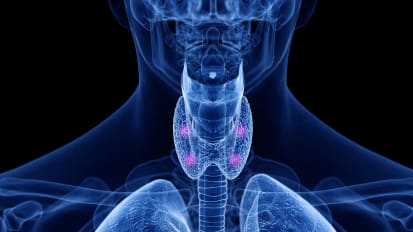 News
News
New Hypoparathyroidism Guidelines and Emerging PTH Replacement Therapies for Improved Patient Outcomes
New guidelines from the Second International Workshop on the Evaluation and Management of Hypoparathyroidism provide clinicians with the latest evidence-based recommendations for the prevention, diagnosis and management of this rare disease. News
News
Transgender Women Benefit from Prostate Cancer Screenings
Transgender women keep their prostates after gender-affirming surgery, and as a result are still at risk for prostate cancer.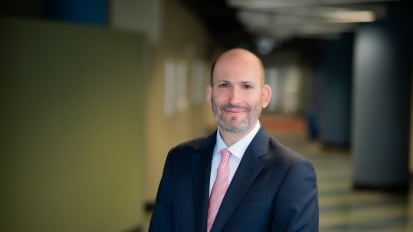 News
News
Renowned Urologic Specialist to Lead UCSF Urology Program
Benjamin N. Breyer, MD, MAS, FACS, a renowned leader in urology and urological surgery, has been appointed chair of the UCSF Department of Urology.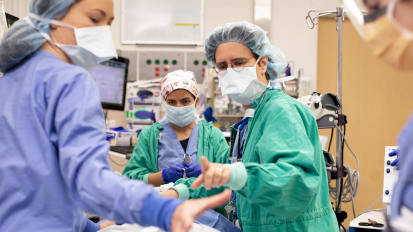 News
News
Low-Risk Differentiated Thyroid Cancer Case Studies: Patient-Centered Approaches to Treatment
A 2022 UCSF study found that, since publication of the 2015 American Thyroid Association (ATA) guidelines, surgeons nationwide are performing more thyroid lobectomies for low-risk differentiated thyroid cancer (DTC) proportional to other thyroid surgeries for the condition.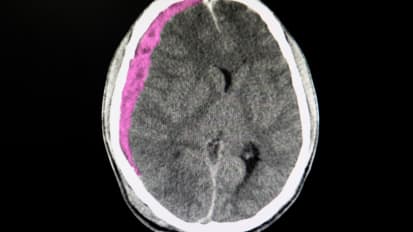 Video
Video
Advanced Care of Subdural Hematoma in the Elderly: A Look at Embolization
Neurosurgeon Luis Savastano, MD, PhD, discusses middle meningeal artery embolization, a cutting-edge, outpatient procedure for subdural hematoma. Video
Video
Everyday Heart Disease Prevention: An Update on Risk Assessment and Clinical Strategies
With heart disease deaths on the upswing since 2010, primary care providers must routinely develop individualized plans to protect their patients from atherosclerosis. News
News
Focused Ultrasound Stops Tremors in Patients with Movement Disorders: UCSF Case Studies
High-intensity focused ultrasound (HIFU) is an incision-free, minimally invasive outpatient procedure during which MRI-guided ultrasound is directed at the ventral intermediate (VIM) nucleus of the thalamus. News
News
UCSF Internal Medicine Specialist Celebrated for Diabetes Epidemiology Research
Alka M. Kanaya, MD, UC San Francisco primary care physician and researcher, has been honored with the 2023 Kelly West Award for Outstanding Achievement in Epidemiology from the American Diabetes Association (ADA).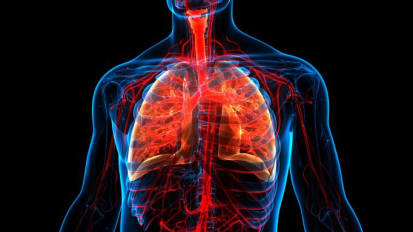 News
News
Can Reducing Insulin Resistance Minimize Severe Asthma Symptoms?
UCSF researchers led a study that found insulin resistance (IR) is common in patients with severe asthma and is associated with lung function impairment and suboptimal responses to asthma medications. Video
Video
Advances in Obesity Medicine: Better Bariatric Surgery Options and Outcomes
With obesity affecting 40% of the U.S. population, bariatric surgeon Jonathan Carter, MD, reviews the devastating health effects of excess body fat and contends that clinicians can no longer sidestep difficult conversations about weight management. News
News
Scientists Discover a Deadly Brain Cancer’s Hidden Weakness
The difficult-to-treat brain cancer glioblastoma steals a person’s mental faculties as it spreads, yet the tumor’s insidious ability to infiltrate distant networks in the brain could also prove its undoing. News
News
UCSF Surgical Oncologists Providing New Treatment Options for Patients with Metastatic Gastrointestinal Cancers
UCSF Health’s surgical oncology team is a Bay Area leader in an innovative chemotherapy infusion pump used to treat patients with widely metastatic colorectal and bile duct cancers that have spread to the liver and are no longer considered operable.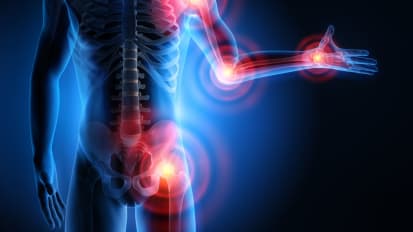 Video
Video
The Intriguing Truth About Orthobiologics: Current Uses, Future Possibilities
For healing diseased or damaged tissues, therapies that use the body's native cellular components may have long-term advantages over go-to treatments, such as steroid injections.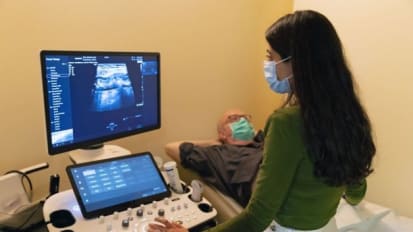 News
News
There’s a More Humane Way to Monitor Crohn's and Colitis Patients
IBD, which comprises Crohn’s disease and ulcerative colitis, affects 1.3% of the U.S. population and accounts for 3 million new diagnoses every year. News
News
Can Lymph Nodes Boost the Success of Cancer Immunotherapy?
New data from a clinical trial show therapies may activate lymph nodes to produce tumor-tackling T cells.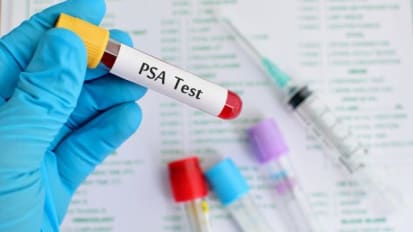 News
News
Personalizing Prostate Cancer Screening May Improve the Accuracy of Detection
The accuracy of prostate-specific antigen (PSA) screening for prostate cancer can be improved by accounting for genetic factors that cause changes in PSA levels that are not associated with cancer. News
News
UCSF’s First Medical Director of Robotic Surgery on Improving Patient Outcomes and Enabling Innovation
Thoracic surgeon Johannes Kratz, MD, has been selected as UCSF’s first medical director of robotic surgery. News
News
UCSF’s Division of Cardiology to Partner with Rosenman Institute
UC San Francisco’s Division of Cardiology has joined with the Rosenman Institute to speed the development of health-tech innovation at UCSF. News
News
New ATS Recommendation: Use Race-Neutral Equations for Pulmonary Function Test Interpretation to Improve Patient Care
An American Thoracic Society (ATS) workshop committee, which included many UCSF researchers, recently released an official statement recommending the use of race-neutral average reference equations for pulmonary function test (PFT) interpretation.

